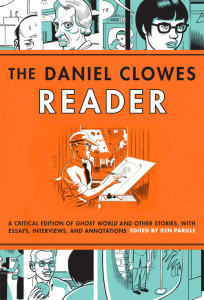 When I was a teenager, I was in a cult.
When I was a teenager, I was in a cult.
It started at the Mall. There was a novelty store called Natural Wonders where my best friends and I spent all of our time. We latched onto a kindred spirit, Josh, a twenty-something employee who humored us to the point of jeopardizing his minimum-wage job on several occasions. The store sold robotic dogs, cats, lions, and giraffes that gyrated stiffly with the flip of a switch, and we arranged them in a writhing orgy in the store’s entrance. We took the “Watch Out, I’m Hot!” stickers off the lava lamps and pasted them on to Josh’s back. We loitered for hours, squeezing the stress balls until there was no give left.
We waited for the moment when he’d kick us out and tell us to never come back. Instead, one day, after we tried on all the safari hats at once, he gave us each a section of a Yanni cd booklet. “You are now the Yanni Cult,” he said, and we turned our heads to the wall-mounted screens that had the world music hero’s live concert on a loop. His long black hair, open white blouse, and even his mustache, moved ethereally in the open air. “Yanni is God,” we said in unison, and Josh smiled at us for the first time.
But really, as a teenager I was already in a kind of cult. When you’re a teen, you think of everyone else as either with you, or against you—classic cult thinking. I guess everyone has felt this way, but it wasn’t until I discovered the work of Daniel Clowes, through the film adaptation of his comic Ghost World, that my fifteen-year old self finally felt validated.
In the newly released Daniel Clowes Reader, some of Clowes most Clowesian (yes, this word is used in the book) work is collected alongside interviews, essays and annotations. By Clowsian I mean work that epitomizes his most salient themes, like the adolescent/early adulthood search for meaning and the DIY/zine/grunge era in which it was situated. Essays on the rise of zines, the resonance of Ghost World with teen girls, and a glossary of cultural terms used in each story make this a detailed map of Clowes’ creative brain and a tour through that odd time in our cultural history, the 90s.
A treasure trove for any Clowes addict, it’s also a beautiful window into the mind of a master storyteller. In the understated, seemingly mundane aspects of life, Clowes creates characters that embody every dangerous and beautiful thing we fear and love about being alive.
Talking about his teenage leads in Ghost World, Clowes says “they’re able to elevate every experience into something artistic and exciting.” That’s the best way I can describe Clowes’ work. I don’t regret the stupid things I did as a teenager, because as Clowes argues, we can never really shake who were then. All we can do is love and hurt and learn, and find reasons to get up in the morning. The Daniel Clowes Reader is a particularly good reason to.